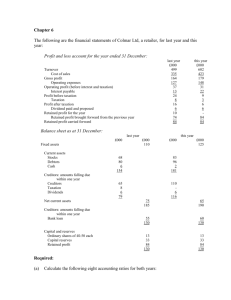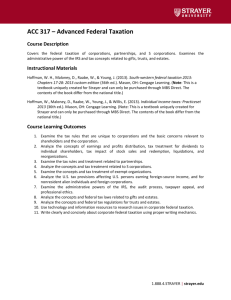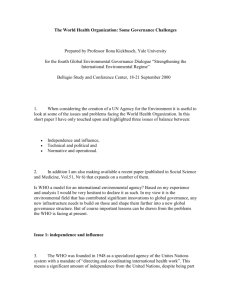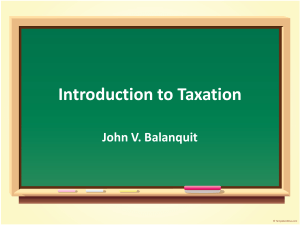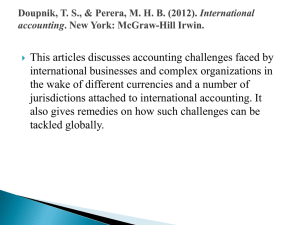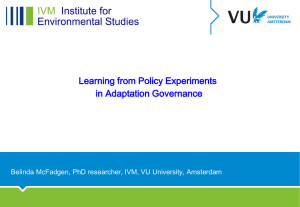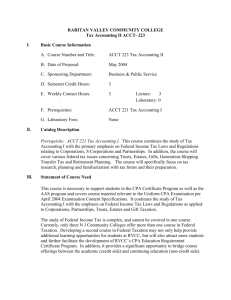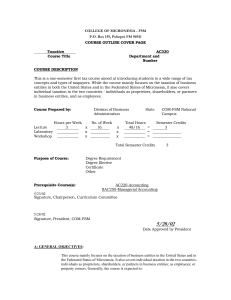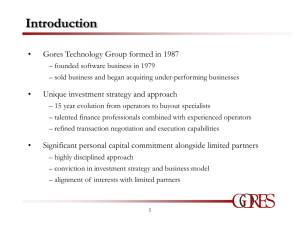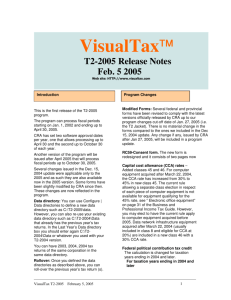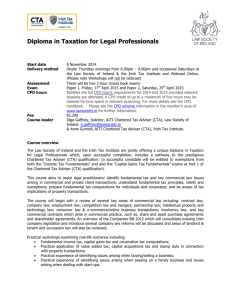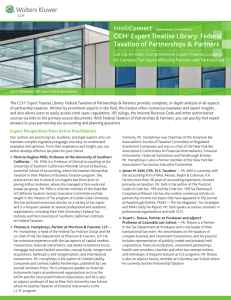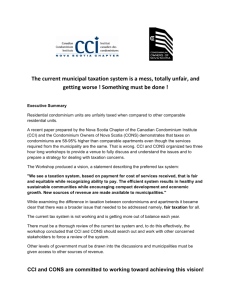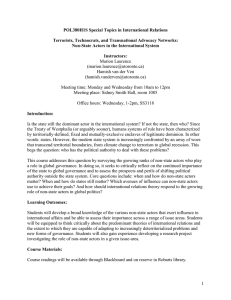Globalization and the growth of global tax governance
advertisement
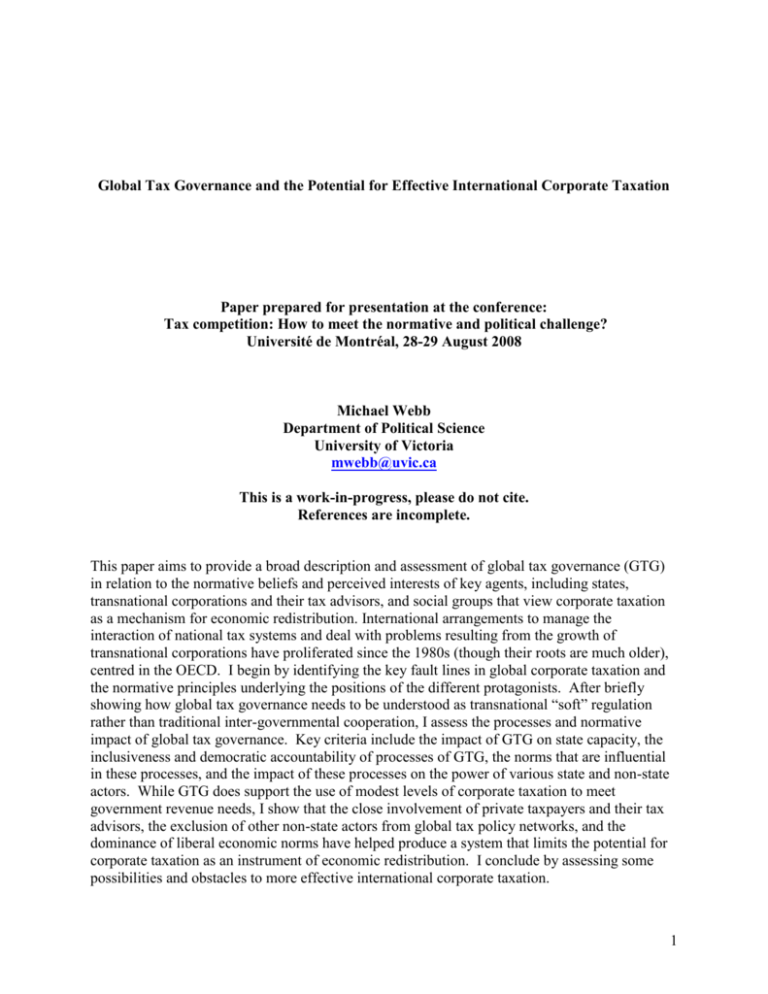
Global Tax Governance and the Potential for Effective International Corporate Taxation Paper prepared for presentation at the conference: Tax competition: How to meet the normative and political challenge? Université de Montréal, 28-29 August 2008 Michael Webb Department of Political Science University of Victoria mwebb@uvic.ca This is a work-in-progress, please do not cite. References are incomplete. This paper aims to provide a broad description and assessment of global tax governance (GTG) in relation to the normative beliefs and perceived interests of key agents, including states, transnational corporations and their tax advisors, and social groups that view corporate taxation as a mechanism for economic redistribution. International arrangements to manage the interaction of national tax systems and deal with problems resulting from the growth of transnational corporations have proliferated since the 1980s (though their roots are much older), centred in the OECD. I begin by identifying the key fault lines in global corporate taxation and the normative principles underlying the positions of the different protagonists. After briefly showing how global tax governance needs to be understood as transnational “soft” regulation rather than traditional inter-governmental cooperation, I assess the processes and normative impact of global tax governance. Key criteria include the impact of GTG on state capacity, the inclusiveness and democratic accountability of processes of GTG, the norms that are influential in these processes, and the impact of these processes on the power of various state and non-state actors. While GTG does support the use of modest levels of corporate taxation to meet government revenue needs, I show that the close involvement of private taxpayers and their tax advisors, the exclusion of other non-state actors from global tax policy networks, and the dominance of liberal economic norms have helped produce a system that limits the potential for corporate taxation as an instrument of economic redistribution. I conclude by assessing some possibilities and obstacles to more effective international corporate taxation. 1


